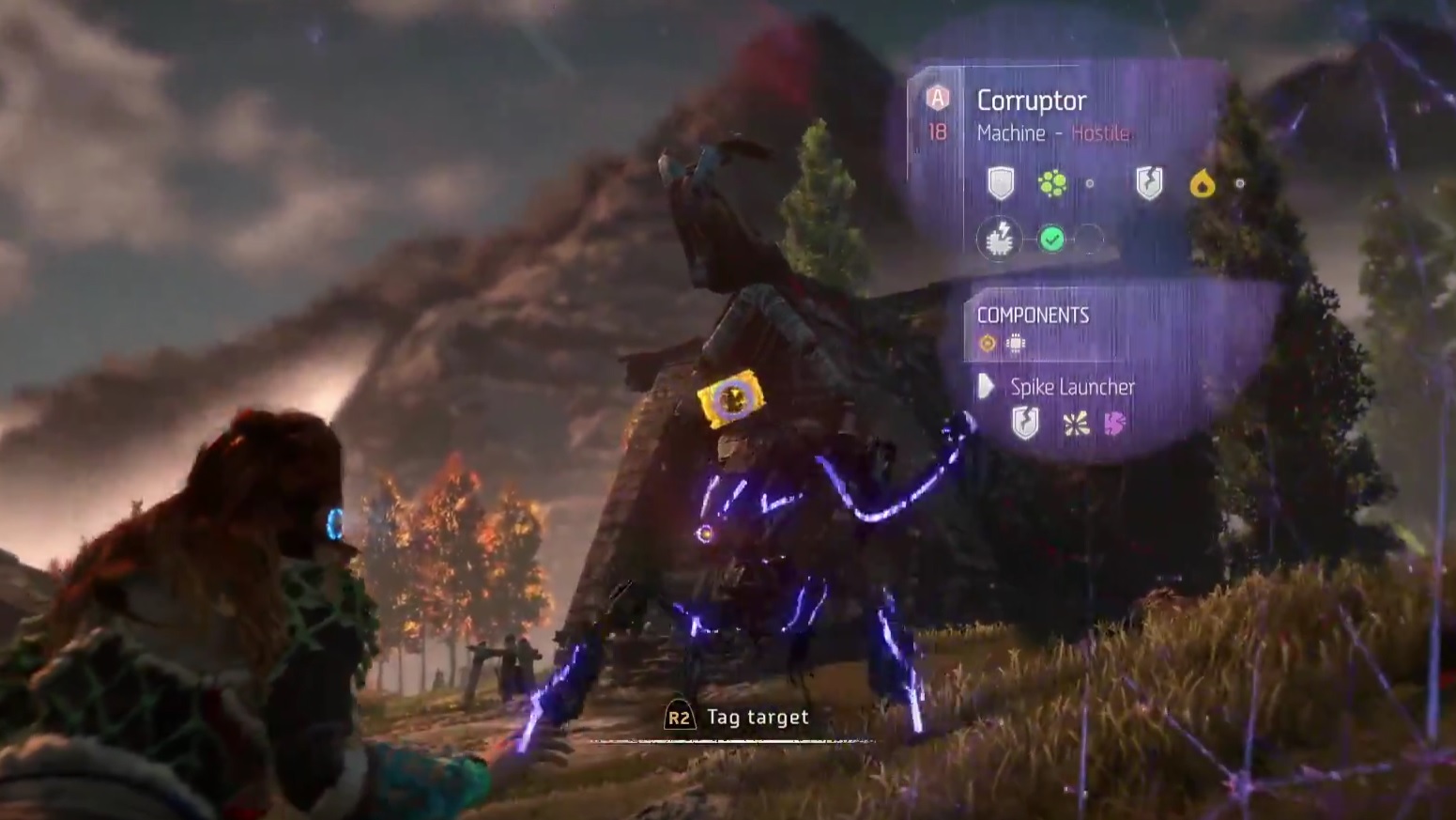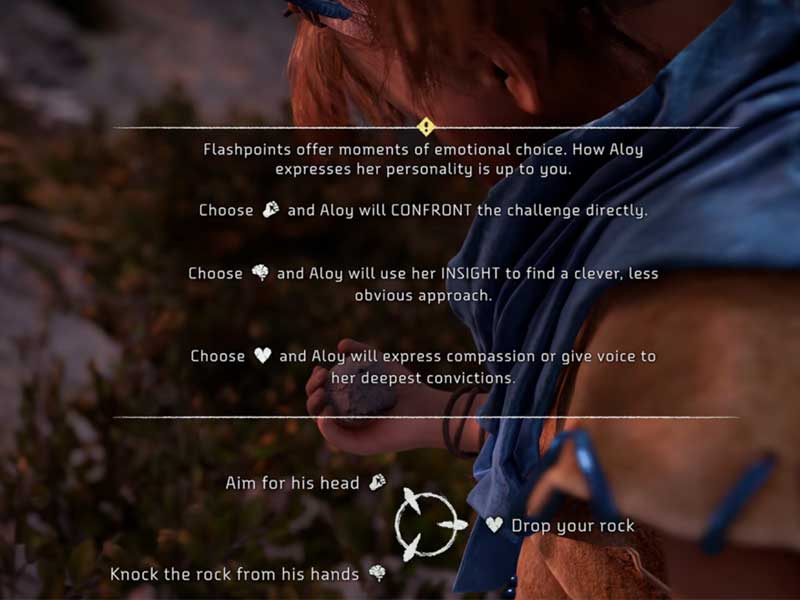Horizon: Zero Dawn while widely praised, is not an open world action-adventure game that I enjoy. That being said generally action-adventure games rarely get a glowing review from myself, such as The Last of Us or the Uncharted videogames. However in the case of Horizon: Zero Dawn my lack of enjoyment has less to do with the genre and more to do with the implementation of the open world elements to the player's actions. Before going through the elements which were not enjoyable, Horizon: Zero Dawn should be praised for the aspects that it did well.
- Localised damage for each enemy - this gameplay element was seen largely with the robotic enemies, allowing for an identification of the various subsystems of the robot which you the player could disrupt. Furthermore the added layer of different elemental effects that could be used against each of these subsystems allowed for variation in the combat. E.g. removing armour, shocking, freezing or burning these enemies.
- Combat mechanics - when the combat flowed together well in a combination of jumping, sliding and dodging the fighting felt exhilirating. However this did become tiring when attacking large groups of enemies as a one woman army.
- AI interaction (robots and NPC humans) - this is something that I've only really noticed in Bioshock, Alien: Isolation and more recently Fallout 4. Enemies would attack each other outside of the player's own involvement, which adds to the sense that the world is alive.
- The story - the story deserves a special mention as the creation of the world and the player-character's place in it is well thought out and established. This makes for an engaging narrative for much of the game and propells the player forward (myself included) to discover more about the past and about their character Aloy. Discovery of how events came to be, or the history of gameworlds can be seen in Destiny, Fallout and other futuristic or alternative history videogames. I guess for a lot of these videogames the progression from a set point to a future one is entrancing for players, or at the very least myself.
- Graphically impressive - the graphics are not really a gameplay feature, but consistently spectacular visuals did keep me around a lot longer than I would have with other games.
Beyond these aspects the rest of Horizon: Zero Dawn were enjoyable but not particularly well done. The open world (Far Cry 4, Mafia III), the bow and arrow mechanics (Zelda, Tomb Raider), the climbing (Assassin's Creed, Mirror's Edge) and collect-a-thons (nearly) are all present in other action-adventure games, and in a better state than what you would find in Horizon. These comparisons can be made readily; however what I will focus on is the way in which Horizon: Zero Dawn uses its open world in combination with the actions of the player. By this I mean whenever a certain task is completed by the player, such as a side mission, there's a correspondence in the game world. Such action can usually be seen on the world map and is noted by the characters of the videogame.
To use Mafia III as an example. Completing a side mission or main mission would clear out opposition from part of the game world. However once done the player would then choose which of their subordinates would gain control over an area of land.
This action by the player enabled a response from the game including a visual signifier of the player's gang control on the in-game map, a particular bonus from their subordinate(depending on the subordinate used), and a change to the narrative depending on if the player favoured one subordinate over the others.
Horizon: Zero Dawn employs none of this reactivity during its play, leaving the player's actions in each area largely unnoticed by the game. As a result the progression of the player-character through the game is only really marked through their progress through the main quest. The fact that the player has removed all corrupted zones or bandit camps from the game world is not reflected in other character's responses let alone in a change to the overall narrative.
There are some reaction present in Horizon: Zero Dawn for the players actions, however these are not as prevalent as Mafia III. In completing some of the side quests the player is able to have more allies in a battle towards the end of game, however this appears to be the extent to which there is variation in how the game can be completed.
Further, Aloy can have different dialogue and reactions based on the player's choices of dialogue. However these are far removed from the player's actions in the game world. Reacting to Aloy being compassionate, logical, or brutal, is something which adds a layer to the gameworld in how the player can interact with non-playable characters; however it does not alter the progression of the narrative, or affect the gameplay.
If Horizon: Zero Dawn provided some of this overworld response to the player's actions beyond marking an area as done and giving the player materials to craft better items, then much of the open world presentation of the game would be made more immersive. This immersion would be due to the depth provided in having a range of results available to the players actions, as opposed to a binarycompletion of objectives. Enabling for different groups to flourish, or having side effects to the extent to which alloy hunts and destroys predators would mean that the actions of the character would carry weight in the world.
Instead what is shown in Horizon: Zero Dawn is the pressence of an open world without any variation to the outcome. In other games the player's actions and decisions make an impact on the game world world and effect it's open nature showing it to be a dynamic system and not just a landscape to get from point A to point B.








No comments:
Post a Comment